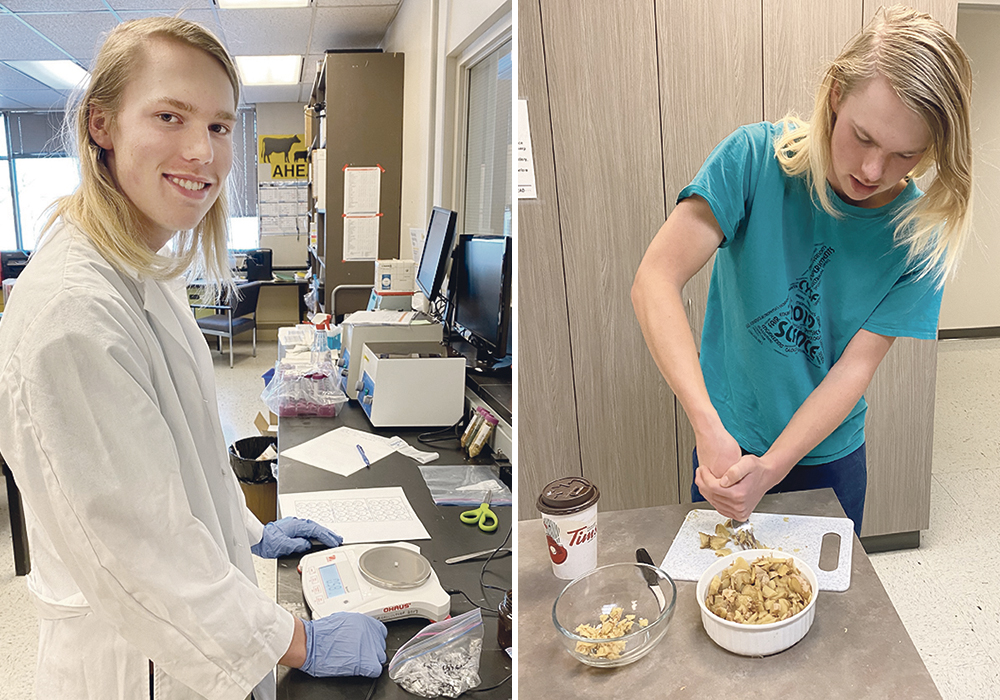Mark Norregaard had no rust to shake off when presenting at his third Canada-Wide Science fair thanks to his project that compared natural corrosion inhibitors on metal.
The 16-year-old Balzac, Alta., native’s project won the silver medal — excellence award, which recognizes science, technology, engineering and mathematics excellence.
“My study was a focus to find more organic corrosion inhibitors and specifically ones that can be grown in Canada,” said Norregaard. “So, I found three different ones, dandelion, ginger and sweet potato.”
Norregaard tested each organic inhibitor in vinegar/salt-water solutions to find which would prevent corrosion better on mild and galvanized steel. He found sweet potato most effective.
Read Also

Chinese, Indian tariffs take toll on pea prices
The disruption of pea exports from Canada’s largest customers will likely result in slow pea exports for the remainder of the crop year.
“I’ve done a lot of projects based around corrosion. I enjoy the setup for it, making the solutions and doing the observations.”
Norregaard tested the short- and long-term viability of his solutions, observing the steel after 14 and 46 days.
“I’d like to do another project comparing the sweet potato corrosion inhibitor to some store-bought ones to see if it’s really that effective, or if it’s just effective compared to other natural inhibitors.”
Norregaard lives near Balzac, where his family farms grain and cattle. He shows heifers, steers and cow-calf pairs through the Balzac 4-H Beef club.
“I’d like to take over the family farm,” he said. “We’ve been here since 1918 so, I guess that’s been 104 years.”
“I’d like to become a beef research scientist like what my mom does.” It’s kind of fun doing those different drug studies and things like that, just bettering the fields you work in.”
The idea for his corrosion inhibitors came because “corrosion is a common occurrence in many different industries. Some of those industries us corrosion inhibitors and most of the corrosion inhibitors are toxic or detrimental to the environment.”
“And I own a couple of old (1980s and 1960s) trucks that are just full of corrosion.”
The University of New Brunswick, Fredericton campus hosted the online event from May 16-20.















